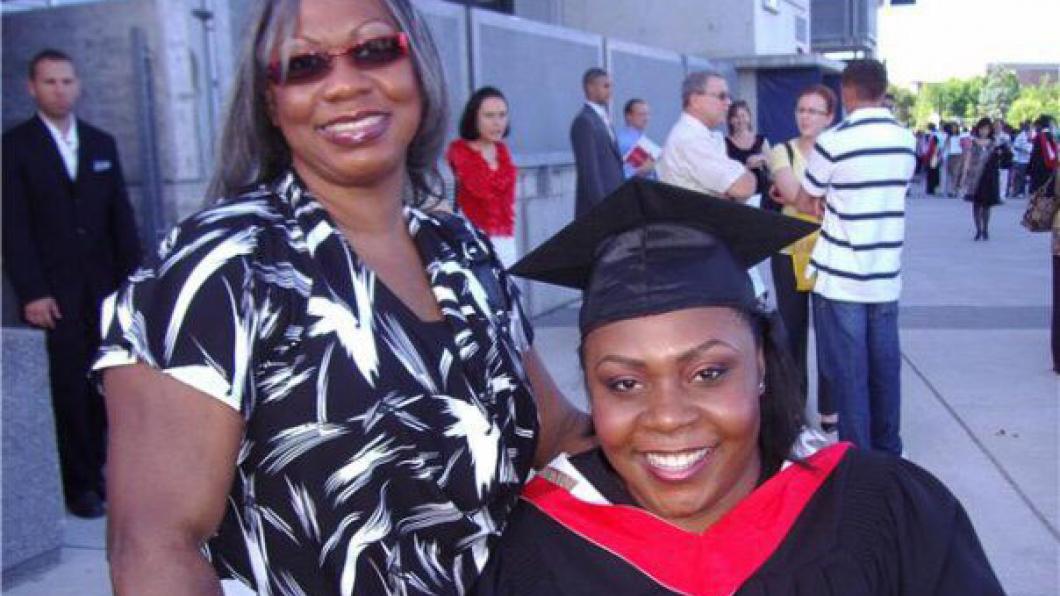
Foundation helps disabled students 'just like me'
By Louise Kinross
After a skiing accident that injured her spine and shoulder, Tamara (Tammy) Gordon had to learn to write with her opposite hand and get around in a wheelchair.
While studying at York University, her mom Marcia attended class with her to take notes.
That’s where the pair noticed how hard it was for other students with disabilities to manage the extra expenses they had at school.
“Some of them were in school for years, because they had to take breaks between courses because they didn’t have enough funding,” Tammy says. “Others had to drop out because of the costs of taxis, tutoring or special equipment that would put them on an even playing field with other students. My mom and I thought ‘Why not start a foundation in my name to help other students just like me?’”
In 2013, The Tamara Gordon Foundation received charitable status. Each year it offers grants from $750 to $3,000 to university or college students with physical disabilities in Ontario.
“My advice to students with disabilities is don’t give up and continue your education because that’s the key to life,” Tammy says. “Work hard, get your high school credits and pursue post-secondary education.”
That’s what Tammy, now 31, did.
At 16, she was an elite basketball player who was being scouted by American universities. Then she became partially paralyzed as a result of a skiing accident.
She lived as in inpatient at Lyndhurst for five months. “It was very long and very hard,” she says. “Before my accident I was left-handed, but I sustained a brachial plexus injury to my left shoulder and lost the use of my dominant hand. So I had to learn how to use my right hand.”
Tammy continued with school onsite and her mom decorated her room “so it looked just like my room at my house,” she says. “I had teddy bears and cards from classmates and teammates, and I even used my own special blanket from home on the bed.”
Daily pain was the biggest challenge, she says. “I definitely wasn’t used to that. Pain medication didn’t really help me, so I’d just try to fight through the pain. After a 12-hour surgery, I had to wear a special back brace for a good while that was very uncomfortable. The process of learning to sit up again and transfer to a chair was long and tedious.”
Something that helped Tammy adapt was talking to other patients who were further on in their rehab journey. “I definitely think it changed me as a person,” she says. “Although I played sports before the accident, I was really shy. The accident really brought me out of my shell. Although I wasn’t among people my age, I was able to talk to the other inpatients at Lyndhurst and learn from their experiences. Later on I got into motivational speaking where I talk about my experiences and encourage others, no matter what they face in life, don’t give up. Even if something like this happens to you, you can still achieve your dreams.”
After her rehab, Tammy tried to return to her old high school, but it didn’t have an elevator large enough to fit her wheelchair “and being around my old friends was tough. It was too hard for them to see me in a wheelchair. Some of them almost took pity on me and felt sorry for me. And others couldn’t make eye contact with me. That was even worse.”
She transferred to an accessible school but then became ill and had to finish her high school through a home program. “I still managed to finish on time with my graduating class.”
Today Tammy works at her foundation as well as being a customer relations coordinator for TD Bank. “I love working at TD because I’m treated like everyone else,” she says. “ Yes, I do need some accommodations in regards to my work station and personal assistance. TD is an awesome company to work for and I’ve been there 11 years.
Tammy says recipients of her foundation’s grants are chosen based on community service and grades. The foundation is holding its first fundraising gala on July 29.
She says her mom played a big role in her recovery after her accident. “Parents, be strong, because we feed off your energy,” she says. “Stay positive and be encouraging. Whatever dreams your child has, let them know it’s possible to achieve. It might take longer or be a harder struggle, but they can get there with the right support and encouragement.”